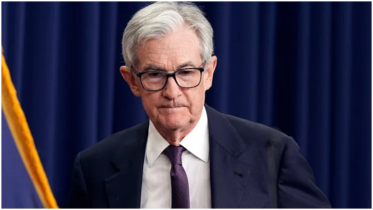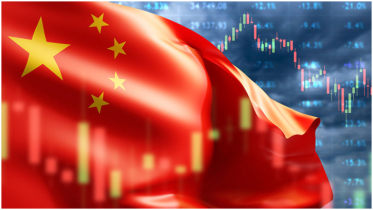Asian stocks, US Dollar gain on strong US data and tech optimism

Asian share markets advanced on Wednesday, tracking gains on Wall Street after upbeat U.S. consumer confidence data and falling bond yields lifted investor sentiment. Market participants also kept a close watch on an upcoming Japanese government bond auction.
U.S. markets rebounded after the long weekend, buoyed by a delay in tariffs announced by former President Donald Trump. On Sunday, Trump postponed the implementation of 50% tariffs, initially announced Friday, until July—easing investor fears of an immediate escalation in trade tensions. The surprise Friday announcement had briefly roiled global markets.
Trump further boosted sentiment by indicating progress in talks with the European Union. Posting on his Truth Social platform, he claimed Brussels had reached out to schedule trade discussions, expressing optimism about improved access for U.S. goods.
“Positive signs from both China and the EU are helping to reduce trade uncertainty,” analysts noted, pointing to the market-friendly tone of recent developments.
Adding to the momentum was a better-than-expected rise in U.S. consumer confidence. The Conference Board's index posted its first increase in six months, rebounding from levels last seen during the early stages of the COVID-19 pandemic. While the report noted that concerns over tariffs remain, the overall outlook improved thanks to easing trade tensions.
Major Asian markets—including Hong Kong, Shanghai, Sydney, Seoul, Singapore, Taipei, Manila, and Jakarta—all posted gains. Wellington bucked the trend, slipping into negative territory despite the Reserve Bank of New Zealand cutting interest rates for a sixth consecutive meeting.
In Tokyo, investor focus shifted to the key sale of 40-year Japanese government bonds (JGBs). Concerns over rising debt costs—highlighted by weak demand at a recent 20-year bond auction—have driven yields higher in recent weeks. Last week, Japanese yields hit record highs amid fears of excessive government spending, partly fueled by Trump's earlier tariff threats.
However, yields dropped Tuesday after Japan’s Ministry of Finance circulated a questionnaire to gauge market sentiment, sparking speculation that it may scale back future bond issuance. This move signaled a possible reduction in supply, which supported market confidence.
Masahiko Loo, senior fixed income strategist at State Street Global Advisors, suggested the recent anxiety in the JGB market may have been overstated.
“We see the issues in the JGB market as technical, not structural,” he wrote, arguing that any perceived supply-demand imbalances were likely temporary and manageable. “Around 90% of JGBs are domestically held, and the coordinated efforts of the Bank of Japan and Ministry of Finance offer strong market support.”
Loo predicted these imbalances could be resolved by Q3 2025, and that the potential slowdown in issuance reinforced that view.
The decline in Japanese bond yields pushed the yen lower on Tuesday, and the currency remained weak in early Wednesday trading, hovering near 144.30 against the dollar.
Key figures at around 0230 GMT
Tokyo - Nikkei 225: UP 0.5% at 37.918.86 (break)
Hong Kong - Hang Seng Index: UP 0.2% at 23,421.96
Shanghai - Composite: UP 0.2% at 3,346.13
Euro/dollar: DOWN at $1.1323 from $1.1329 on Tuesday
Pound/dollar: DOWN at $1.3502 from $1.3504
Dollar/yen: DOWN at 144.26 yen from 144.34 yen
Euro/pound: DOWN at 83.86 pence from 83.88 pence
West Texas Intermediate: UP 0.8% at $61.36 per barrel
Brent North Sea Crude: UP 0.7% at $64.56 per barrel
New York - Dow: UP 1.8% at 42,343.65 (close)
London - FTSE 100: UP 0.7% at 8,778.05 (close)
.png)




